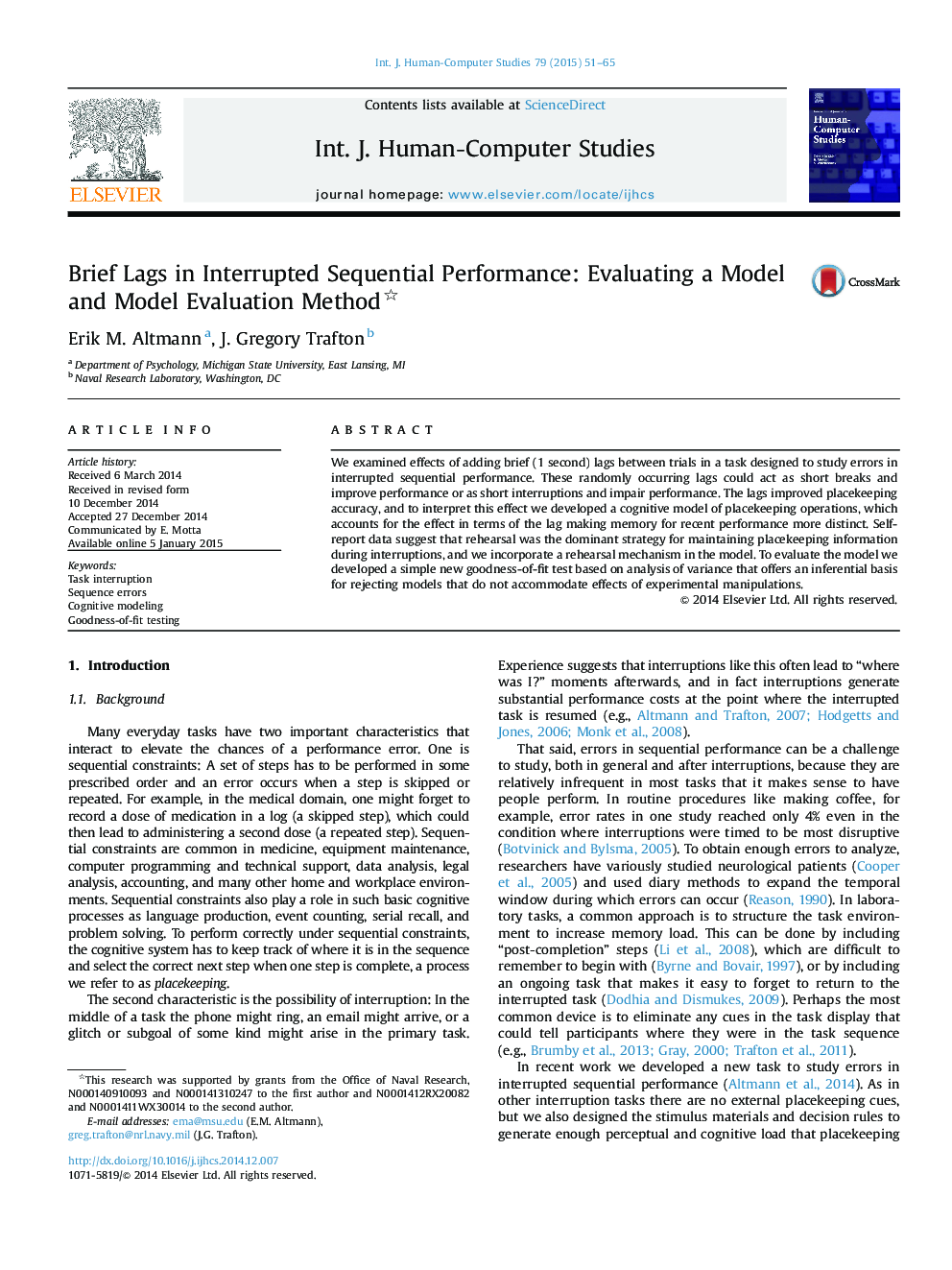| کد مقاله | کد نشریه | سال انتشار | مقاله انگلیسی | نسخه تمام متن |
|---|---|---|---|---|
| 400662 | 1438974 | 2015 | 15 صفحه PDF | دانلود رایگان |
highlights
• Brief, unfilled lags between trials improve placekeeping accuracy on the post-lag trial
• A model of the effect attributes it to sharpened memory for recent performance, with implications for interpreting speed-accuracy tradeoffs more generally
• A model evaluation technique is developed that tests goodness of fit inferentially and helps identify incorrect theoretical assumptions
We examined effects of adding brief (1 second) lags between trials in a task designed to study errors in interrupted sequential performance. These randomly occurring lags could act as short breaks and improve performance or as short interruptions and impair performance. The lags improved placekeeping accuracy, and to interpret this effect we developed a cognitive model of placekeeping operations, which accounts for the effect in terms of the lag making memory for recent performance more distinct. Self-report data suggest that rehearsal was the dominant strategy for maintaining placekeeping information during interruptions, and we incorporate a rehearsal mechanism in the model. To evaluate the model we developed a simple new goodness-of-fit test based on analysis of variance that offers an inferential basis for rejecting models that do not accommodate effects of experimental manipulations.
Journal: International Journal of Human-Computer Studies - Volume 79, July 2015, Pages 51–65
